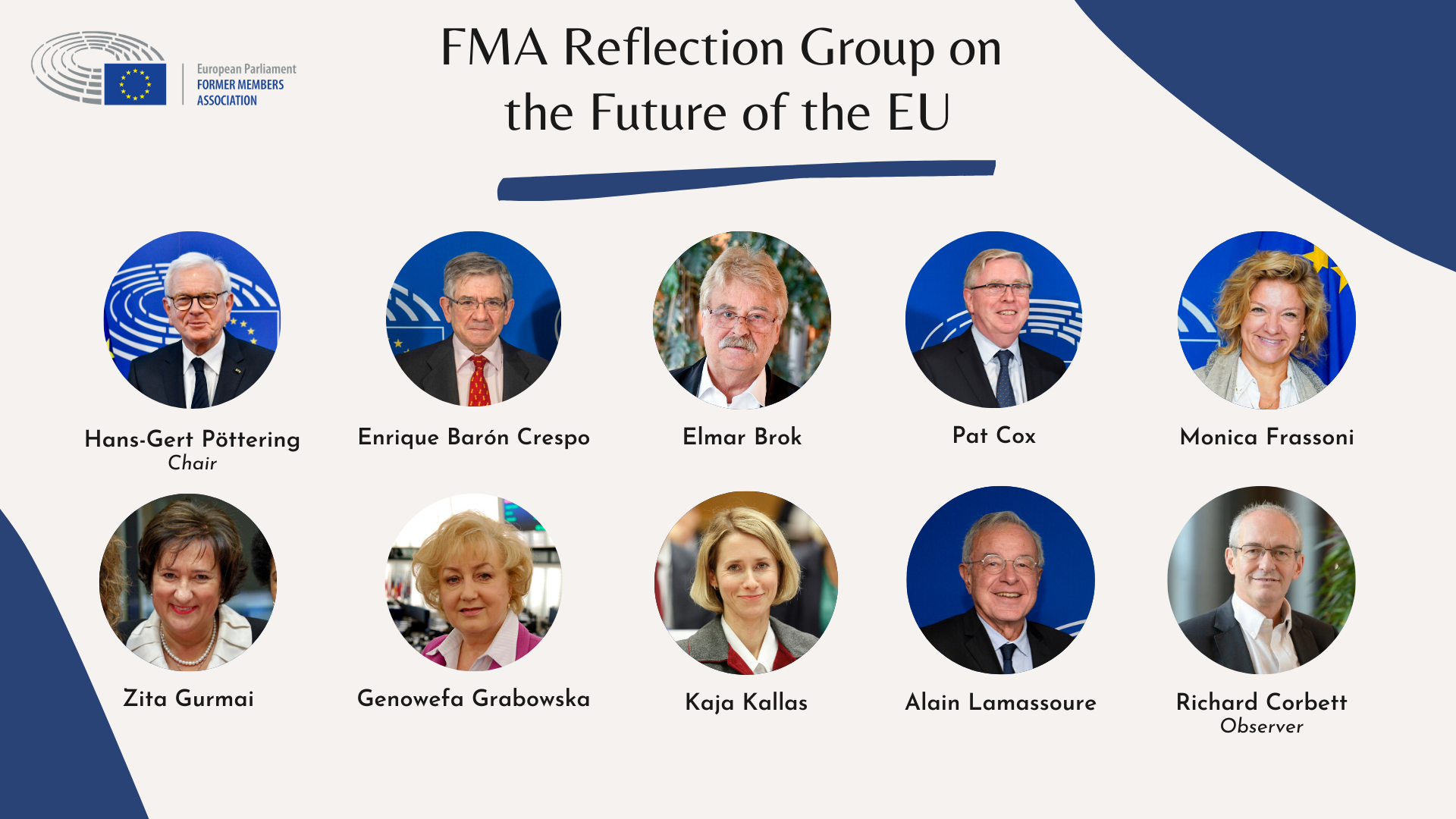Conference “Together for the future of Europe” on Green Transition Strategy
On 8 December 2021, the European Parliament Former Members Association had their fourth online conference of the series Together for the Future of Europe discussing and promoting the topic “Green Transition Strategy. What a sustainable transition can and should do for Europe.
The event was opened by Klaus Welle, Secretary General of the European Parliament. He said” some politicians are focused on the past, some on the present and some on the future. The European commission is firmly focused on the future and more precisely on a green future.”
Cristina Gallach Figueras, Former Spanish Government’s High Commissioner for the 2030 Agenda, highlighted the intergenerational question that we face as Europeans. “How are we going to leave the planet to the next generation?” she asked the panel.
Professor Jos Marie R. Delbeke, School of Transnational Governance (STG) part-time Professor and full Professor at KU Leuven- Belgium, noted that “The European green deal is an ambitious endeavor but exposes the massive amount of investments yet to make. 2030 is going to be here soon and we need to hurry up to reach the targets.”
Eva Patrashkova, EPP Senior Political Adviser, Adviser, focusing on the EU’s environmental, energy and agricultural policies points out the positive lessons we have learned during the current health crisis. “The relevance of cooperation and solidarity with the developing world is crucial. We have seen this throughout the pandemic and the comparison between with how we will need to deal with climate crisis is very obvious. Adaptability, cooperation is key in face of future challenges.”
The pandemic has also shown how we have failed to respond. “We have shifted the responsibilities of solving the health crisis on to the private sector without making them accountable. We need to be wary to not repeat this for the climate crisis and monitor that social contract closely.” Said Daša Šašić Šilović, President of the European Partners for the Environment; Chair, International Board, CEE Network for Gender Issues.
Legislation concerning emissions is the main challenge according to John Hassler, (PhD MIT) Professor of Economics at the Institute for International Economic Studies at Stockholm University. “looking at historical examples we can see that when we have a natural resource that has a limited supply but unrestricted access we get an overdemand. That free access to our air quality needs to be globally limited and legislated.
Dirk Holemans, Co-President of the Green European Foundation, agreed with professor Hassler but points out that taxation and the fiscal structure need to be adjusted to the 21st century and that there needs to be an eco-social contract between legislation and European citizens. “We need to challenge the social impact of carbon pricing otherwise lowest income households will be hit hardest. If climate policy changes create fear in our citizens’ hearts it will not work in favour of a green future.
This conference is part of the Debates on the Future of Europe. The FMA decided to accompany the start and the holding of the Conference on the Future of Europe, involving former MEPs, its partners, civil society representatives and stakeholders in the discussions supporting a bottom-up, transparent, and participatory approach promoted by the European Parliament.
The FMA established an FMA Reflection Group on the Future of the European Union that is responsible for monitoring the discussions and work of the CoFoE. It meets regularly to adopt a final contribution to CoFoE with the academic support of Prof. Dr. Steven van Hecke (KULeuven).
We invite you to follow us on our website and on social media through Twitter and Facebook.

About the FMA
The Former Members Association of the European Parliament aims to foster relationships between former Members of the European Parliament by publishing a quarterly Bulletin and newsletters, organising social and cultural events, information meetings, debates and study visits, and by keeping in contact with similar organisations in other countries. In addition to that, FMA members engage in democracy support and election observation missions as well as fostering the cooperation with universities by participating pro bono in the EP to Campus educational programme.
The Management Committee of the FMA is composed of ten elected former MEPs.
For further information, please contact Lisseth BRAVO RUEDA:
Tel. +32 (0)2 284 07 03
Facebook: EuroparlFMA
Twitter: Europarl_FMA
